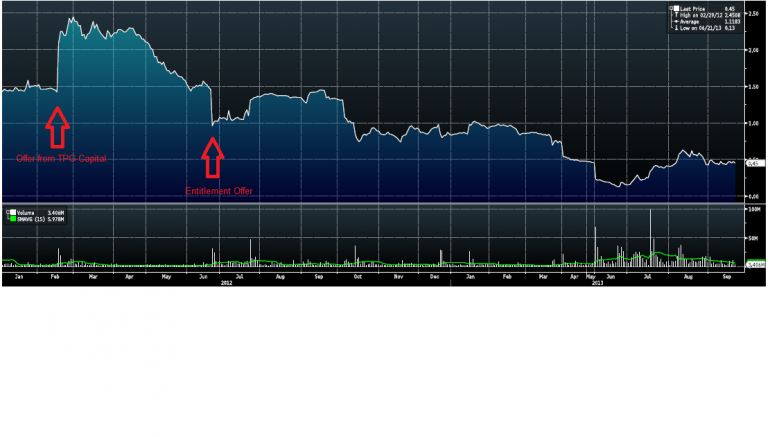Markets: Timing the wave, trading the deal
An agreement on the future of Billabong slams the door on two years of missed opportunities for shareholders. The board and a major shareholder, Gordon Merchant, are to thank for the waves of despair shareholders have felt since the first offer for the struggling surfwear brand was wiped out.
Generally, a takeover offer sends the target’s share price soaring as investors move it closer to the target price. At this point, investors either acknowledge this could be the best way to realise value on their holdings and sell, or stick around in hope for better days. Some investors jump in to the company hoping a bidding war will ensue, and that they will make a quick profit along the way.
But none of this applied to Billabong. In fact, you would be hard pressed to find someone who actually made a profit trading on the possibility of a takeover for the struggling retailer.
On Friday February 17 2012, the day news broke that TPG Capital might be interested in the surfwear brand, offering $3 per share, Billabong screamed 46 per cent higher, closing at $2.08.
The market never really gained a convincing conviction the TPG offer might come to fruition – if it did, shares would have moved closer to the offer price. But they topped out at $2.45 on February 29, 2012.
From this point on, it has only been misery and disappointment for Billabong shareholders.
Subsequent offers were paltry in comparison to TPG’s -- and Billabong had the audacity to raise funds only four months after the initial takeover offer at $1.02 per share. Not only was it a mere third of the takeover value, it diluted existing shareholders who may not have wanted to expand their exposure to a sinking share price.
An entitlement offer at a 44 per cent discount to the last trading price should have sent investors swimming for shore. Such a big discount is only offered when underwriters know it is going to be difficult to get the offer away.

Between majority shareholder and founder, Gordon Merchant, having a sense of entitlement (both financially and emotionally) and a difficult operating environment Billabong was probably never buoyant enough to trade to profitability on takeover talk.
You either need to own the company before the takeover offer is announced or be confident a fight will ensue for the takeover target. GrainCorp fits the former case, surging a stunning 38 per cent in one day to close at $12.30 on October 22 2012 after a takeover offer from Archer Daniels Midland Company (ADM). As we close on the anniversary of the offer, GrainCorp has managed to hold its ground, trading around the offer price of $12.20.
The battle for The Trust Company highlights how a fight can turn trading on an initial takeover into a profitable strategy. The Trust Company has climbed 54 per cent since Equity Trustees made an initial offer on 21 February of this year.
In the case of The Trust Company, the board felt the offer undervalued the company. Fortunately for them, they received better offers from both Perpetual Limited and IOOF Holdings, helping push the share price higher.
The issue with the board of Billabong was their lack of willingness to embrace an offer that was at a 111 per cent premium to their last closing price. One can only assume TPG would feel they have missed a toxic wave.
















